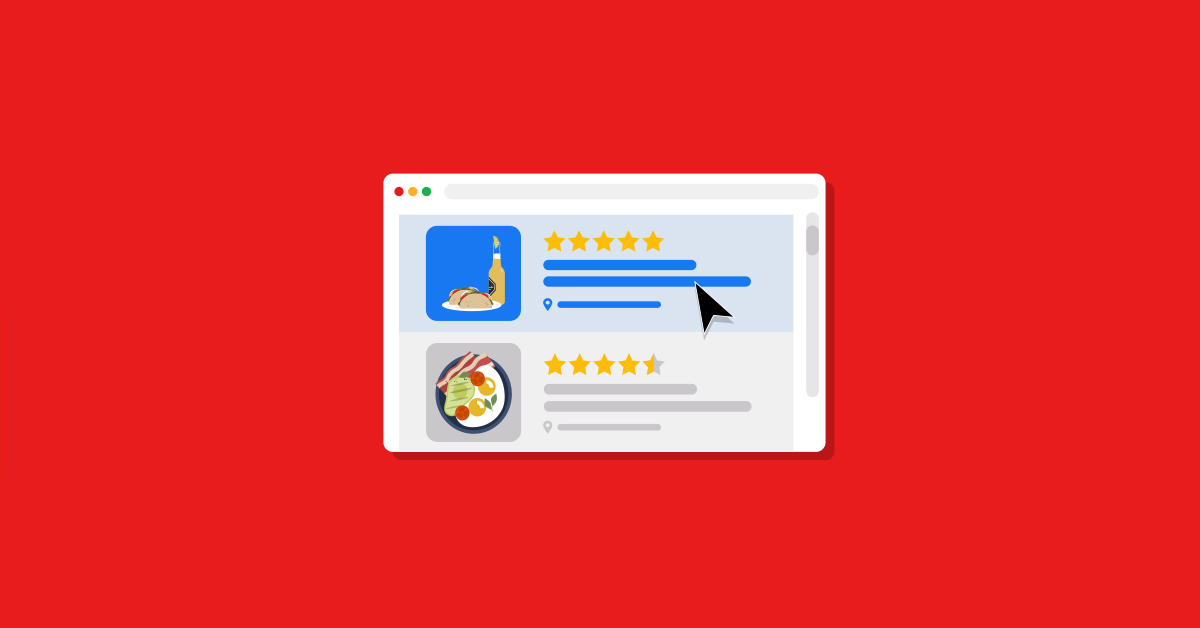
There’s a lot more nuance to opening a hotel bar and hotel bartending than running a standalone bar or restaurant. Hotel bars serve hotel guests and tourists, but in order to succeed, they also need to appeal to locals.
What’s more, hotel bars must be able to service guests in different parts of the property. Some guests may order drinks and food at the bar, others to the lobby and others to their rooms—a hallmark of the convenience customers can expect at your hotel.
While running a bar in a hotel comes with challenges, it can also be incredibly fulfilling, not to mention lucrative. In this guide to hotel bartending, you’ll learn:
- Why you should add a bar to your hotel
- How to add a bar to your hotel
- Considerations unique to hotel bars
- How technology can help streamline hotel bar management
Why you should add a bar to your hotel
If you’re reading this article, you’re already curious about hotel bartending, but may not have made up your mind fully. Need help making a decision? Here are several reasons to add a bar to your hotel.
Increased revenue
A hotel bar is a great way to add a revenue stream to your establishment. By running and owning a bar in a hotel, you can make money from drink and food sales, and not just by charging guests for lodging.
Moreover, when you have a hotel bar, you can introduce yet another revenue stream by offering takeout and delivery. Just be sure to check local laws around alcohol delivery and takeout. Many pandemic-era cocktail to-go exceptions have ceased as restaurant capacity restrictions have been lifted.
Value-add for hotel guests
Having a bar on-site elevates the hospitality you’re able to offer hotel guests. With a bar, your hotel becomes a one-stop-shop for respite, drinks and entertainment.
And what’s more convenient than not having to leave the premises to imbibe? Not having to leave your hotel room. A hotel bar lets you deliver both hospitality and convenience. Bringing specialty cocktails to guests’ rooms via room service enhances their experience.
All this also means that guests may be more likely to book your hotel over one that doesn’t have a bar.
Potential to become a hotspot for locals
With a bar, you can attract more than just travelers to your hotel. By adding happy hour specials and entertainment (like live music or a dance floor), you can turn your hotel bar into an enticing nightlife destination for locals and out-of-towners.
The bottom line is that adding a bar to your hotel will create a new revenue stream, and, before you know it, a new source of profits for the hotel.
How to add a bar to your hotel in 5 steps
Have we convinced you that foraying into hotel bartending is the right move for your business? If so, these five steps to opening a hotel bar will take you from ideation to your grand opening.
Though most of these steps look the same as for opening a traditional food business, there are some key distinctions.
1. Choose the perfect location
First, survey your hotel and find a location for your bar. It’s best to set up the bar in an area that gets a lot of foot traffic to help attract customers who aren’t hotel guests. If there are no street-facing locales available, setting the bar up in the hotel’s lobby is a good option.
Alternatively, take advantage of attractive outdoor space, like a courtyard, pool deck or rooftop. An idyllic location like one of these can help make your hotel bar a must-visit for locals, as well as tourists. Just make sure to weatherproof your space with heaters and umbrellas to ensure it’s usable year-round.
Take inspiration from the trendy Freehand Hotel, which has locations in New York City, Los Angeles, Miami and Chicago. Inside every location, you can find the Broken Shaker, the hotel chain’s signature cocktail bar. The bar is located in a different part of each hotel, depending on the local climate and the building’s footprint.
For example, the Broken Shaker in Miami is an outdoor, poolside bar, while Chicago’s Broken Shaker is located past the hotel’s cozy lobby. The New York Broken Shaker is situated on the hotel’s rooftop, and has both indoor and outdoor spaces to accommodate the changing seasons. And in Los Angeles, the bar can be found on the hotel’s rooftop pool deck, making it an attractive destination for tourists and locals alike.
2. Obtain the proper licenses and permits
After you’ve selected the perfect location for your hotel bartending business, you need to get the proper licenses and permits to legally operate. While regulations will vary from city to city, state to state and province to province, owning a bar will most likely require the following permits:
- Liquor license: Lets you legally serve alcohol.
- Zoning permit: Ensures your hotel is allowed to operate a bar.
- Health permit: Ensures you’re operating safely.
- Occupancy permit: Sets the limit for how many people you can have in your bar at any given time.
Consult a legal professional to find out exactly which permits and licenses you’ll need to open your hotel bar.
3. Create an inviting atmosphere through interior design
After you’ve taken care of the paperwork that goes into opening a bar, it’s time for the fun part, designing your space.
Design
The sky’s the limit when it comes to designing the bar—just see the innovative bars that made Architectural Digest’s ranking of the best-designed hotel bars in the U.S. If you have good taste and are low on funds, you can design the bar yourself. If you’d rather work with professionals and have the budget for it, it’s best to work with an interior design firm that specializes in the hospitality industry.
You can make your bar match the vibe and brand of the hotel, or you can make it transport guests somewhere else.
Seating options
If your space allows for it, you may want to consider adding these seating options, in addition to essential bar seating:
- High-top tables: These casual seats invite quick turnover.
- Cozy lounge seating: Mix couches and armchairs to inspire guests to stay for a while and keep ordering drinks.
- Traditional table seating: This is good to have if you want to serve food and plan on leveraging reservations.
No matter what your mix of seating, carefully consider your bar or restaurant’s floor plan to optimize your guests’ experience and allow your staff to move through the space efficiently.
4. Build your food and beverage program
Now it’s finally time to create the menu of your dreams.
First, decide if you’ll only serve drinks, or if your bar will also offer meals. Drink-only establishments tend to need fewer staff members and have higher profit margins than bars that serve food. If you want to serve food, you’ll need to hire chefs, and your insurance premiums will probably be higher than if you didn’t have a kitchen with fire. However, food will help you expand the business by offering room service, delivery and takeout.
If you don’t have the expertise to create recipes for your menu, hire someone who does. Create a signature cocktail list, and include a few delicious mocktails too. Carefully put together a beer and wine list.
When pricing menu items, consider the cost of goods sold, the profit margins you want to achieve and the prices of your competitors. A food cost calculator can help take some of the guesswork out of this exercise.
5. Staff your hotel bar
Now all that’s left to do is to hire the right people and train them to run your bar. Look for staff with experience in hospitality, and ensure that bartenders know how to make classic cocktails by heart.
Effective hotel bar or restaurant management requires a unique set of skills. The roles you’ll need to fill will depend on the size of your operation, and what you’re offering guests. Consider the following roles for your hotel bar:
- General manager
- Beverage program director
- Food program director
- Server
- Bartender
- Host
- Cook
With your staff in place, you’re ready for your grand opening.
Considerations unique to hotel bars
Here are several things to think about that are unique to hotel bartending.
Guest relationship management
If you own and operate both your hotel and bar, these two aspects of your business shouldn’t be siloed. Bar staff should know when they’re serving hotel guests, and they should treat them like VIPs.
Charging drinks to the room
Unlike standalone bars, which require guests to close out tabs when they leave, hotel bars need to be equipped to allow hotel guests to charge their tabs to their rooms, and close out when they pay their final hotel bill upon check out.
Put safety measures in place, like a digital guest list with room numbers and names, to ensure bar guests don’t falsify this information.
Room service
Add value for hotel guests by letting them order drinks and food from the bar via room service. Maintain an elevated dining experience while ensuring drinks don’t spill in transport by investing in proper equipment, and training staff on how to perform these deliveries. It’s customary to add a service fee for room deliveries.
How technology can help streamline hotel bar management
Running a bar in your hotel won’t be easy, but technology can help. With these key pieces of technology, you’ll be able to streamline operations and make more money:
- Hotel property management software (PMS) that integrates with your bar’s technology.
- A hotel bar POS (point of sale system) to track transactions and key business data.
- A reservations system, to help you know who is coming to your bar, and when.
- Online ordering software to facilitate room service and external delivery and takeout.
- Marketing automation software to help you promote your hotel and bar to hotel guests, and your bar to locals.
- A customer relationship management platform (CRM) to keep track of guest preferences and help you identify hotel guests AND locals who are your regulars.
The bottom line: Elevate hospitality with hotel bartending
Opening a bar in your hotel is a fantastic way to give your guests more value, keep them entertained, and boost sales.
To open a bar, you’ll need to scout the perfect location inside the hotel, obtain the right permits and licenses, design your space and menus, as well as train your staff.
Technology, like PMS integrations, a POS and others can streamline operations to help you get more done with less.
Want to learn about how Lightspeed POS can simplify running your hotel bar? Talk to us today.

News you care about. Tips you can use.
Everything your business needs to grow, delivered straight to your inbox.





